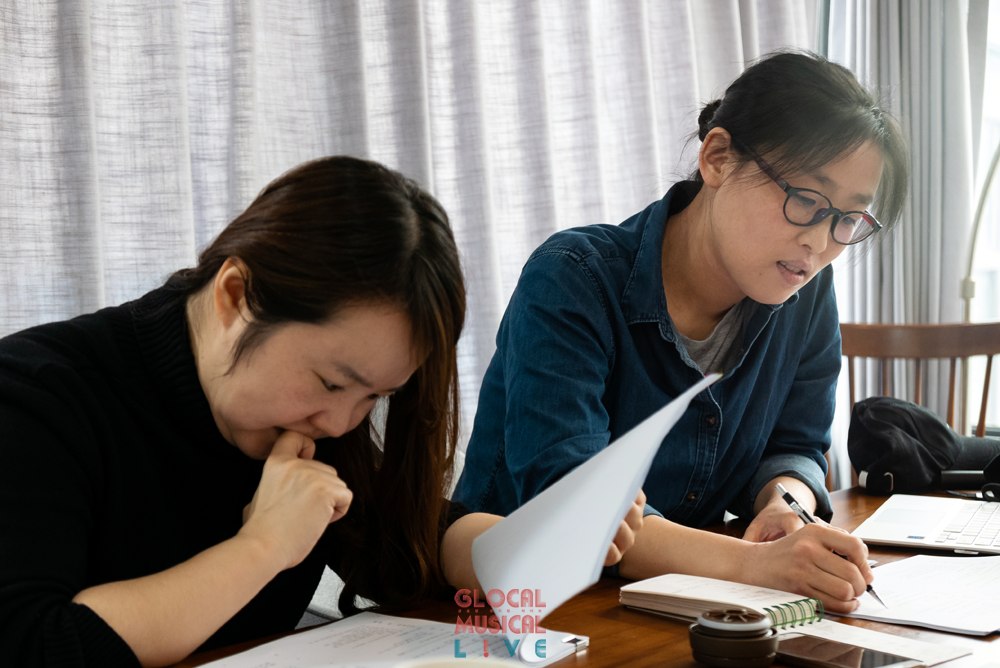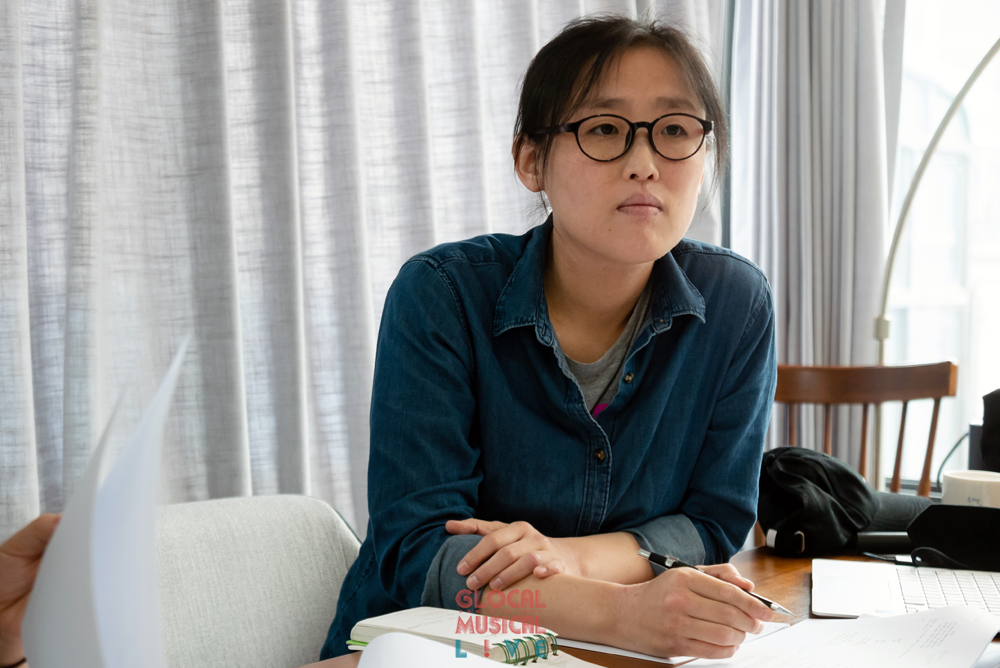‘DIAL’ 2nd Mentoring
Date and Time: Nov. 7th 2018 (Wed) 11:00 ~ 13:00
Place: Daehangno CH Watermelon office
Mentor: Director Min-Joo Choo
Musical ‘DIAL’ is a work about happening around 1970’s telephone company. There is no such huge change of story’s flow that ‘Eu-Jin’ who entered telephone company from her own home town empower with others together to fight against the illegal tapping of dictatorial government, detail setup of characters and composition of scenes have been revised in accordance with table reading and 1st mentoring. Now this 2nd mentoring had a step to check out the problems on the scenario by reading revised scenario slowly and carefully.

At first, Director Choo pointed out that the story size of ‘DIAL’ is more or less huge, so it is necessary to make it small. On the present scenario, there are only 3 stories which are the story of telephone operators as workers, story of Miss tele-woman contest hosted by magazine, and the conspiracy story of government’s illegal tapping are connected and mixed. Many people are wastingly used and in compliance with the size of story gets bigger, and problems such as coming out non-daily words like ‘Light of the period’ appeared. Choo recommended to Ji-Hye Yoo, the writer about this matter to think again about the reason why ‘Eu-Jin’ should be the main heroin, and what is the point on the main stage of incident ‘telephone company’ that Yoo wants to show to the audiences. In detail, she asked Yoo to re-consider the amount of other characters’ scenes by reducing the size of incident with the center of heroin Eu-Jin, and arrange the scripts with much more daily words and languages. Also Choo said that the force of finishing part feels weak as proceeding scenes so that each incident should be much more systemized for making the climax powerful.
Except for some characters on this ‘DIAL’, rest of the casts do not have enough and reasonable purpose to appear on this work, and they just stay on the functional roles to explain the incidents or periods only. For example, the phases of the times are explained by ‘Nam-Il’, main hero’s voice, and set-up the employee of the ‘criminal identification department’ on the dictatorship, identified as an enemy of main character has been configured too fragmentarily, so that those issues disturb concentrating on the story as well as losing its persuasive power. For this, director Choo explained that the musical can make audiences concentrate on the stage when it has the right reason for each character why they should appear on the stage, as well as desire of each person. She advised that the characters are able to actually be ‘the mirrors to reflect the times’ which the writer really wants to show the audiences via the musical. Also it is necessary for audiences to make the relationship between each character recognize as easy as possible. Then she recommended the way to make configuration of characters specific and accurate by asking constantly ‘What does that character want for this? and what makes him want that?’

If the first two advices were about the stories and configuration of each character, the last advice was about the musical writing technique. At first, there came out about the composition of each scene. There are many cases on this musical ‘DIAL’ that one scene has many places and many incidents by proceeding simultaneously. For example, one side of this stage is used as telephone company, and the other side is used as music cafe by overlapping the place. In this case, audiences can hardly recognize which is more important incident than others. Choo said, “There is one scene which has two spaces for incidents. If it’s intended by the writer, it is necessary to arrange the intention of the writer again.” She added that the work should avoid simultaneous happenings, and need to concentrate on the main stage, telephone company. The next point-out was that the connection of each scene is not that smooth because there is no system to transit inside the scenario. When changing the scenes on the musical, various ways are used such as fade-out, characters’ appear and walkout, or music. But in ‘DIAL’, there are many cases of transition with ‘getting dark for a while’ and subtitles. It is not that bad way for changing scene on the video clips, however it’s not a good way on the stage. So Choo asked to write down the better and effective way of transition for changing scenes on the musical stage later.





